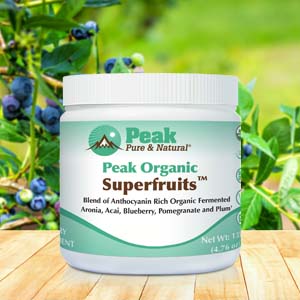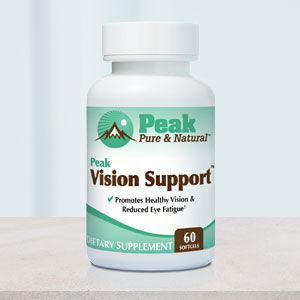Get Easy Health Digest™ in your inbox and don’t miss a thing when you subscribe today. Plus, get the free bonus report, Mother Nature’s Tips, Tricks and Remedies for Cholesterol, Blood Pressure & Blood Sugar as my way of saying welcome to the community!
The fruit that fights macular degeneration

There’s a lot of buzz about exotic superfruits nowadays. Acai berries, goji berries, baobabs, mangosteens. These fruits all pack a nutritional punch that provides serious disease-fighting benefits.
But what about those ordinary old fruits we’ve been eating all our lives? The ones our moms packed in our lunches when we were kids? Are those just as good at fending off disease?
Absolutely! You don’t have to turn to exotic (and expensive) fruits to fight disease. Even the most everyday fruits have impressive disease-fighting powers… like the humble orange.
Chances are, you’ve eaten many oranges in your life. I know I have. Next to apples, oranges are the fruit I’ve eaten the most. But don’t underestimate the orange because it isn’t exotic or exciting. It’s just as healthy as all those superfruits with fancy-sounding names.
Need proof?
How about a recent study that shows that eating an orange a day can help protect you from a serious age-related eye disease? I think that should do the trick!
Oranges offer protection from macular degeneration
Macular degeneration is a common eye disease among people over 50. It damages the macula, a part of the eye you need for sharp, central vision. If it’s not treated, macular degeneration can cause serious vision loss and even blindness.
Age is the biggest risk factor for macular degeneration. But protecting yourself could be as easy as eating an orange daily.
Researchers from Westmead Institute for Medical Research in Australia recently found that eating oranges makes you less likely to develop macular degeneration.
The study included 2,000 adults who were 50 or older. Researchers followed them for 15 years. When the study was done, people who ate at least one orange per day were far less likely to get macular degeneration. Their risk was 60 percent lower than people who never ate oranges.
Why are oranges so good for your eyes?
Well, oranges are high in vitamin C, which promotes eye health. But researchers believe it’s mostly due to flavonoids. Oranges contain a lot of these powerful antioxidants, which are known to reduce inflammation and strengthen the immune system.
Flavonoids are found in nearly every fruit and vegetable and a bunch of other foods and beverages too. But when it comes to macular degeneration, not just any flavonoids will do…
Researchers tested a few other foods that are high in flavonoids, like tea, apples and red wine. But these didn’t make a difference in macular degeneration risk. So, for now, stick to that oh-so-delicious citrus fruit — the incredible orange!
Adding more orange to your life
If you want to prevent macular degeneration, there’s never been a better time to head to the store and pick up some oranges. You can buy organic oranges if you’d like. But conventional oranges should be relatively pesticide-free too since the skin acts as a natural barrier.
If you’re sick of eating oranges plain, try creative ways to add them to your menu. You can put them in a fruit or vegetable salad. You can turn them into a tasty (but healthy) dessert, like these dark chocolate-dipped clementines with sea salt or this cake made completely from fruit. You can add them to a smoothie, like this rocket fuel smoothie. However, you choose to eat your oranges, make sure to squeeze them in daily for your eyes’ sake.
Editor’s note: Did you know that when you take your body from acid to alkaline you can boost your energy, lose weight, soothe digestion, avoid illness and achieve wellness? Click here to discover The Alkaline Secret to Ultimate Vitality and revive your life today!
Sources:
- An orange a day keeps macular degeneration away: 15-year study — MedicalXpress
- Dietary flavonoids and the prevalence and 15-y incidence of age-related macular degeneration — American Journal of Clinical Nutrition
- Facts About Age-Related Macular Degeneration — National Eye Institute
- Health benefits of oranges — Medical News Today














